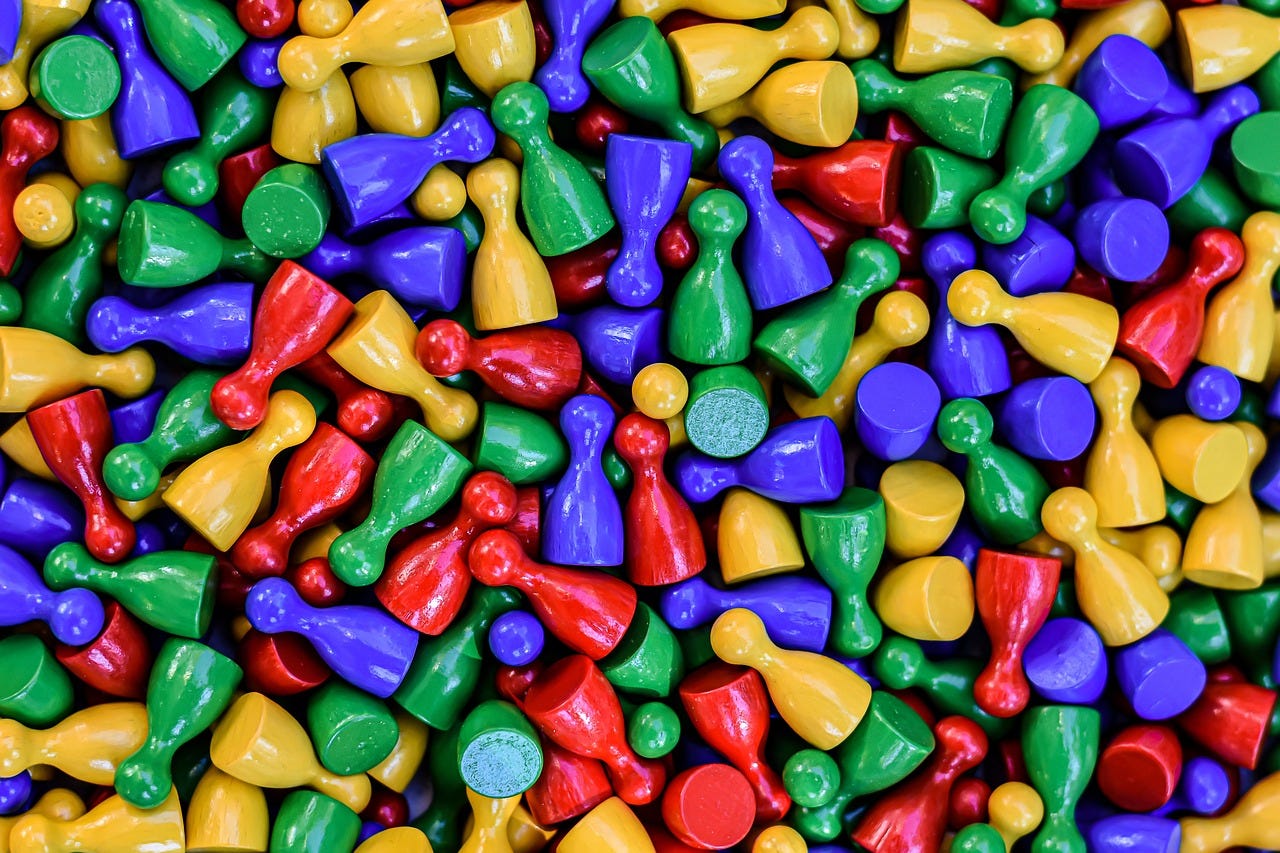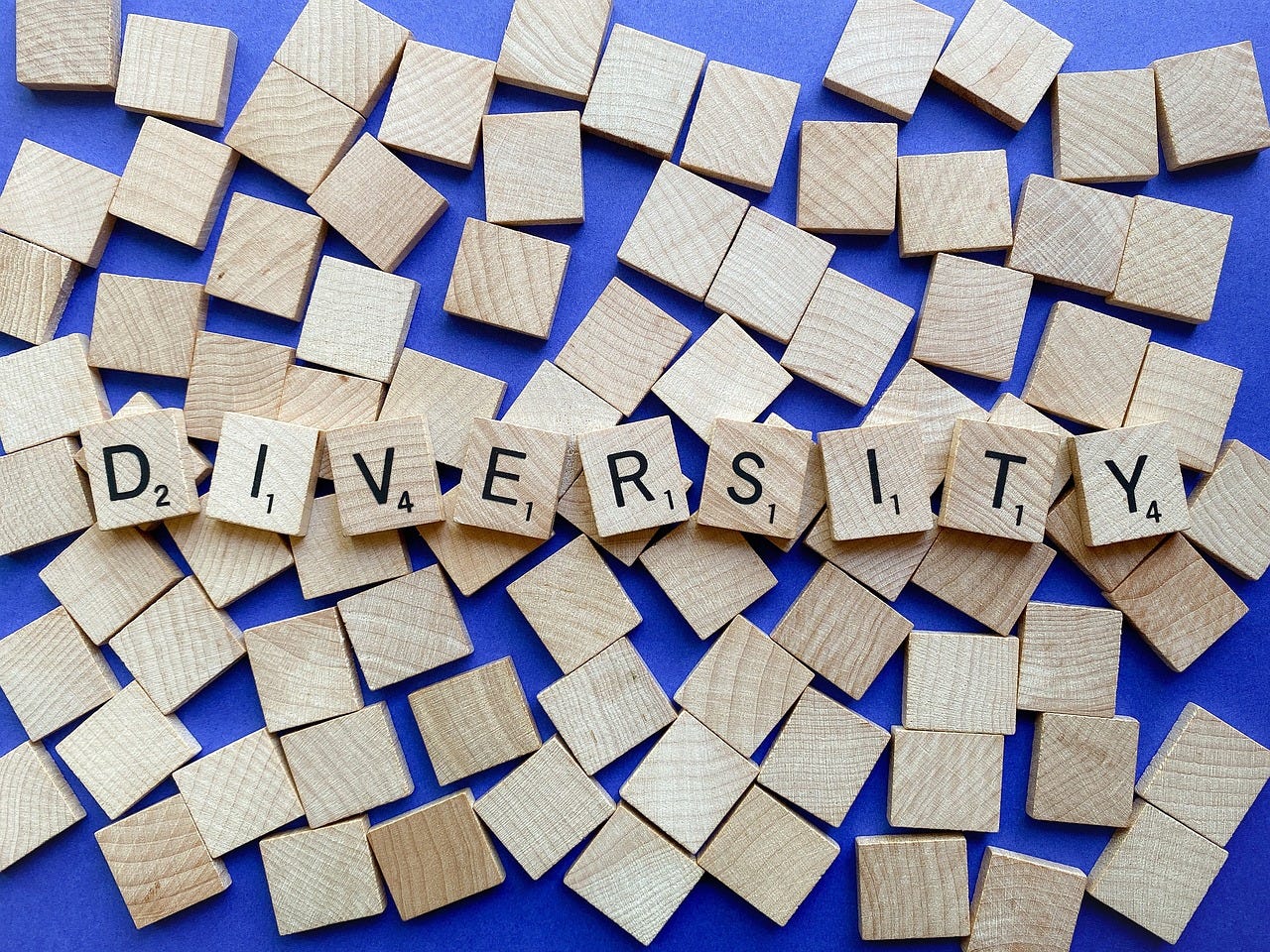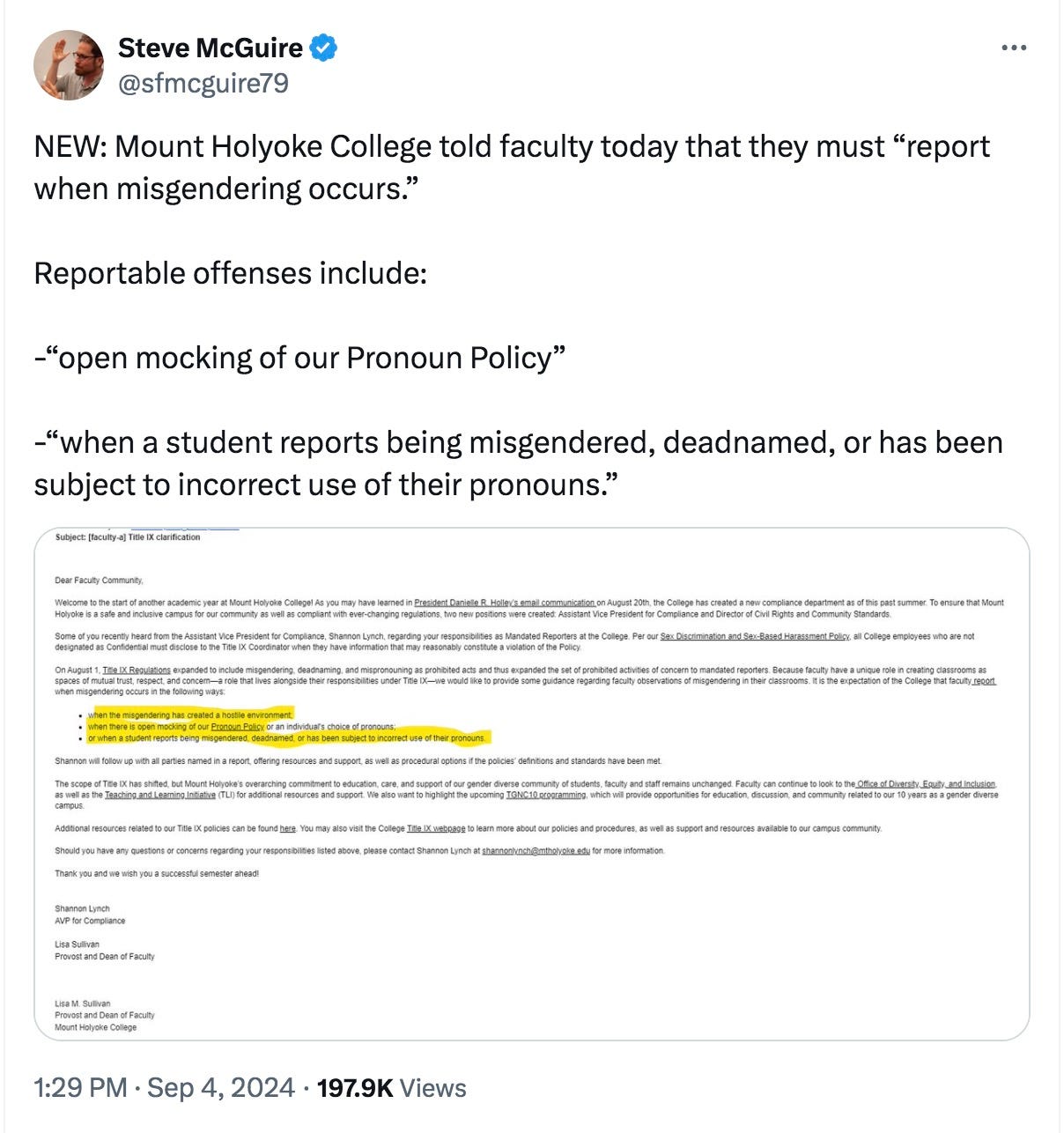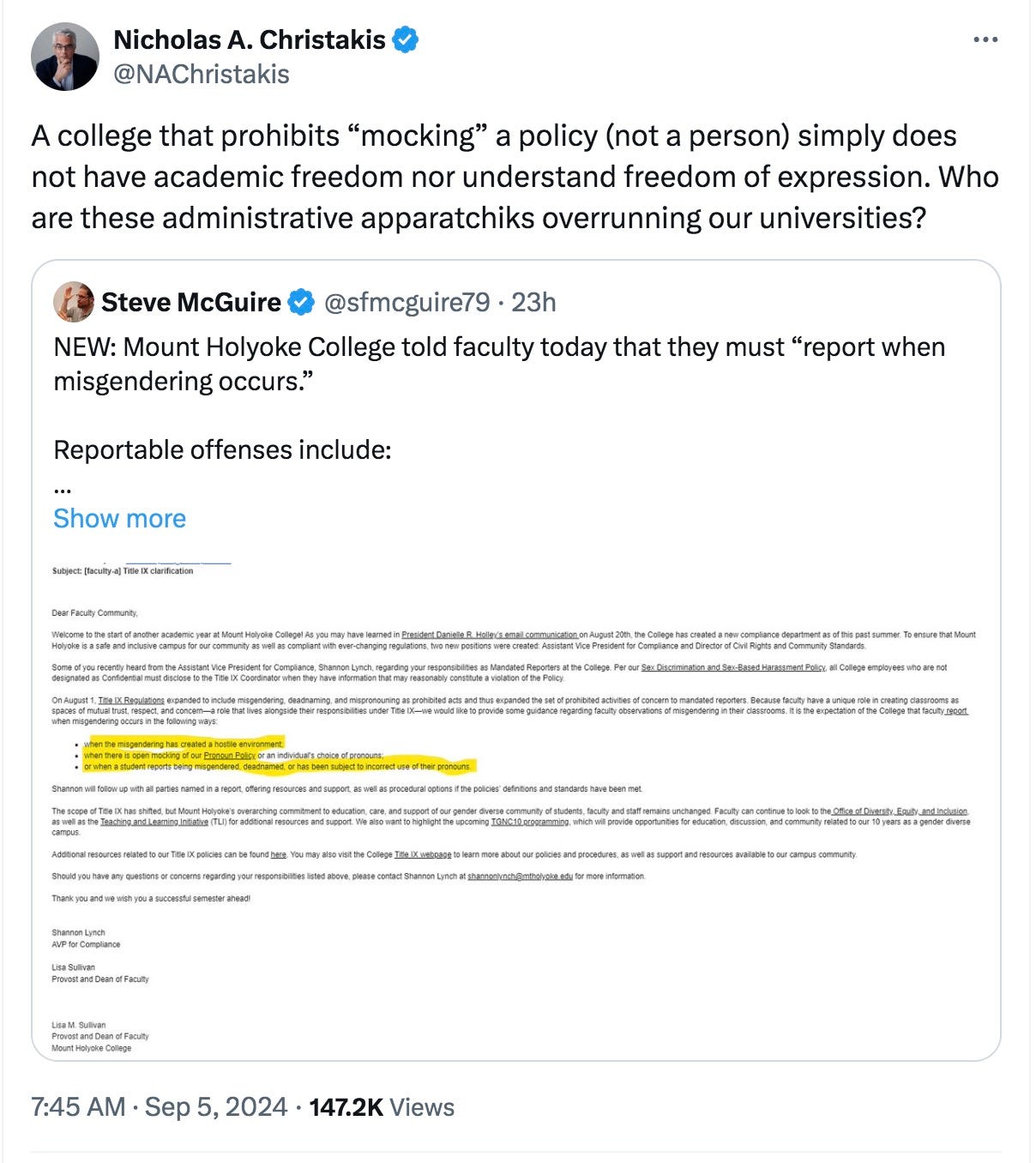E-Pluribus | September 5, 2024
The irrelevance of diversity in business; differences don't have to be divisive; and a turn for the worse for speech in Hong Kong.
A round-up of the latest and best musings on the rise of illiberalism in the public discourse:
Zaid Jilani: Diversity Won't Make Your Company More (Or Less) Productive
“Our strength is our diversity” has been used by various groups over the years to emphasize the value of the American melting pot. But sometimes “diversity” has been co-opted as a tool of social (and business) engineering. At Persuasion, Zaid Jilani questions the notion that “diversity” somehow makes businesses more productive.
Does diversity make the workplace more productive? In some corners, it’s taken as an article of faith that diversity is a massive contributor to team performance.
[. . .]
A new meta-analysis—which looked at hundreds of studies across the globe that studied the impact of different forms of diversity on team performance—offers a more nuanced picture. It contradicts the claim that diversity always enhances team performance. Interestingly, it also contradicts the counter-claim that diversity is inherently harmful to team cohesion and output.
[. . .]
[A Birkbeck Business School research team] categorized the theoretical impacts of diversity into roughly two camps—that diversity can improve performance by bringing new perspectives to the table, and that it might increase conflict by making communication and cohesion more difficult. What they found, after combing through the studies as part of the meta-analysis, is that the two effects may result in a wash.
Overall, they found a positive effect from diversity—defined broadly across different geographical contexts in terms of age, race, gender or a similar category—but it was very small. The impact was also dependent on context. “For example, contexts that are directly about creative and innovation or research and development, there we see more positive relationships between diversity and team performance,” he said.
But in contexts where teams simply have to get routine tasks accomplished, Wallrich noted that while there “are still reasons to create equality of opportunity … it’s probably not worth [it] to diversify teams just for the sake of diversity.”
Yet Wallrich emphasized that “there’s definitely no evidence that there would be harm on average,” either. Meaning that when it comes to workplace performance, your average workplace doesn’t have a lot to fear or a lot to gain from diversifying. “I don’t think it’s entirely surprising, [the two effects] cancel each other out,” he said.
The lesson from Walrich’s meta-analysis is that maybe we should all take a deep breath and stop promoting diversity as either a cure-all or a civilizational disaster. There are upsides and downsides to having more diversity—whether it means racial diversity, age diversity, gender, or other kinds.
Read it all.
Howard Husock: Diversity That’s Not Divisive
Colleges and universities have become famous (infamous?) for setting aside special areas on campus for “affinity groups,” segregated by race or some kind of sexual or gender preference in the name of diversity. At City Journal, Howard Husock highlights what he sees as a positive example of areas devoted to diversity at the University of Pittsburgh: Nationality Rooms. Understanding and celebrating how various groups in the past contributed to our current American culture can be unifying, Husock says.
The fall academic year has already brought to campus renewed anti-Semitic violence. At the University of Pittsburgh, last Friday, a keffiyeh-clad non-student used a broken bottle to slash two Jewish students wearing yarmulkes and what might be termed “walking while Jewish.” The two were able to subdue their attacker until police arrived and arrested him. Such attacks are of a piece with the anti-Zionism of academia and its obsession with identity politics and alleged oppression. As students return to classes at Pitt, history courses will include such choices as Museums as Sites of Contestation, and the Gender, Sexuality and Women’s Studies offerings will include Queering Home: How Trans and African American Spaces Reframe Capitalism.
But a balance to such courses can be seen in the decor of Pitt classrooms—ironically located in the landmark building outside of which the attack on the Jewish students took place. In the school’s towering, Gothic-style Cathedral of Learning, classes will be held in the Nationality Rooms, which include exhibits dating to 1938 that celebrate the cultures of 31 immigrant groups who built the Steel City: Hungarians, Scots, Czechoslovaks, Turks, Lebanese, Norwegians, Germans, English, and more. A student group has provided tours since 1944. The Nationality Rooms provide, per their official description, the “opportunity to engage in learning in a unique setting that helps [students] explore the historic diversity of the Pittsburgh region.”
This is a different kind of diversity than that which we hear so much about today, the tendentious sort that emphasizes ongoing difference and inequality, that asserts that “inclusivity” has fundamentally eluded America. The message of the Nationality Rooms recalls the time when E pluribus unum emphasized the distinct but complementary backgrounds of immigrants and minorities. “In their diversity,” wrote one-time university chancellor Wesley Posvar of the Nationality Rooms, in a guidebook still on sale, “they preserve and honor our ethnic identities. Collectively, they symbolize our national unity.”
Our national culture, in other words, is greater than the sum of its parts—but it is worth celebrating the contributions of those parts.
[. . .]
That the Nationalities Rooms are also classrooms stands as a kind of rebuke to current academic fashion. If students knew only the cultural, political, and scientific history on display in these rooms, they would already have learned more than they could from the selective and polemical arguments more commonly given today. One hopes that students absorb a great deal simply through the osmosis that comes with observation.
Read it all here.
Jack Nicastro: Is Free Speech Doomed in Hong Kong?
The decline of freedom of expression in Hong Kong has been long in coming and inevitable given China’s control and influence, but knowing that does not make each new development less concerning. Jack Nicastro of Reason reports on the latest guilty verdicts for daring to criticize the government.
Chung Pui-kuen and Patrick Lam were convicted last week by Hong Kong District Court Judge Kwok Wai-Kin on charges of "conspiracy to publish and reproduce seditious publications," per NPR. The charge of sedition includes "inciting hatred or contempt against the Chinese central government [and] the Hong Kong government." Following their convictions, the two journalists each face a maximum of two years in prison and a fine of HK$5000 (or $640).
[. . .]
Hong Kong's pro-democracy protests were prompted by the Hong Kong Security Bureau's proposed amendments to extradition laws, which would enable Chinese extradition of Hong Kongers, in February 2019. In response, thousands took to the streets in March of that year and over half a million followed suit in June. On October 23, 2019, the extradition bill was withdrawn, but this victory for Hong Kong's freedom was short-lived. In May 2020, Beijing announced it would impose the NSL on Hong Kong. The Chinese parliament approved the measure on May 28, and a month later, the law went into effect.
Jimmy Lai, the billionaire founder of clothing retailer Giordano and founder of the newspaper Apple Daily, was arrested in August 2020 under the NSL for "collusion with foreign forces," to which Lai pleaded not guilty. Lai is currently being held in solitary confinement.
Then, in June 2021, Apple Daily was raided under the NSL. Five editors were arrested for "'use of journalistic work' to incite foreign forces to impose sanctions on Hong Kong and China," according to the Associated Press, citing Hong Kong Security Secretary John Lee. Following the 500-officer raid, Apple Daily shut down for good.
Other courageous pro-democracy voices have faced even stricter punishment under Chinese jurisdiction. Yang Hengjun, a Chinese-Australian writer, academic, and former employee of China's Ministry of State Security, was convicted of espionage in a closed-door hearing in May 2021. Hengjun's death sentence was commuted to life in prison this February, following a two-year probationary period.
[. . .]
As if speech were not sufficiently curtailed in China and Hong Kong by the NSL and the British sedition law, the Article 23 law, a.k.a. Safeguarding National Security Ordinance, was signed into law unanimously in March of this year. Article 23 "expands the crime of sedition…and raises the maximum punishment from two years in prison to 10," according to NBC News.
Read the whole thing.
Around Twitter (X)
Via Steve McGuire, Mount Holyoke College is taking on policy mocking and “deadnaming”:
Via Colin Wright, some good news for Harvard! Well, everything is relative.
And finally, the FBI has had it up to here with election interference and they’re not going to take it anymore. Be forewarned.










